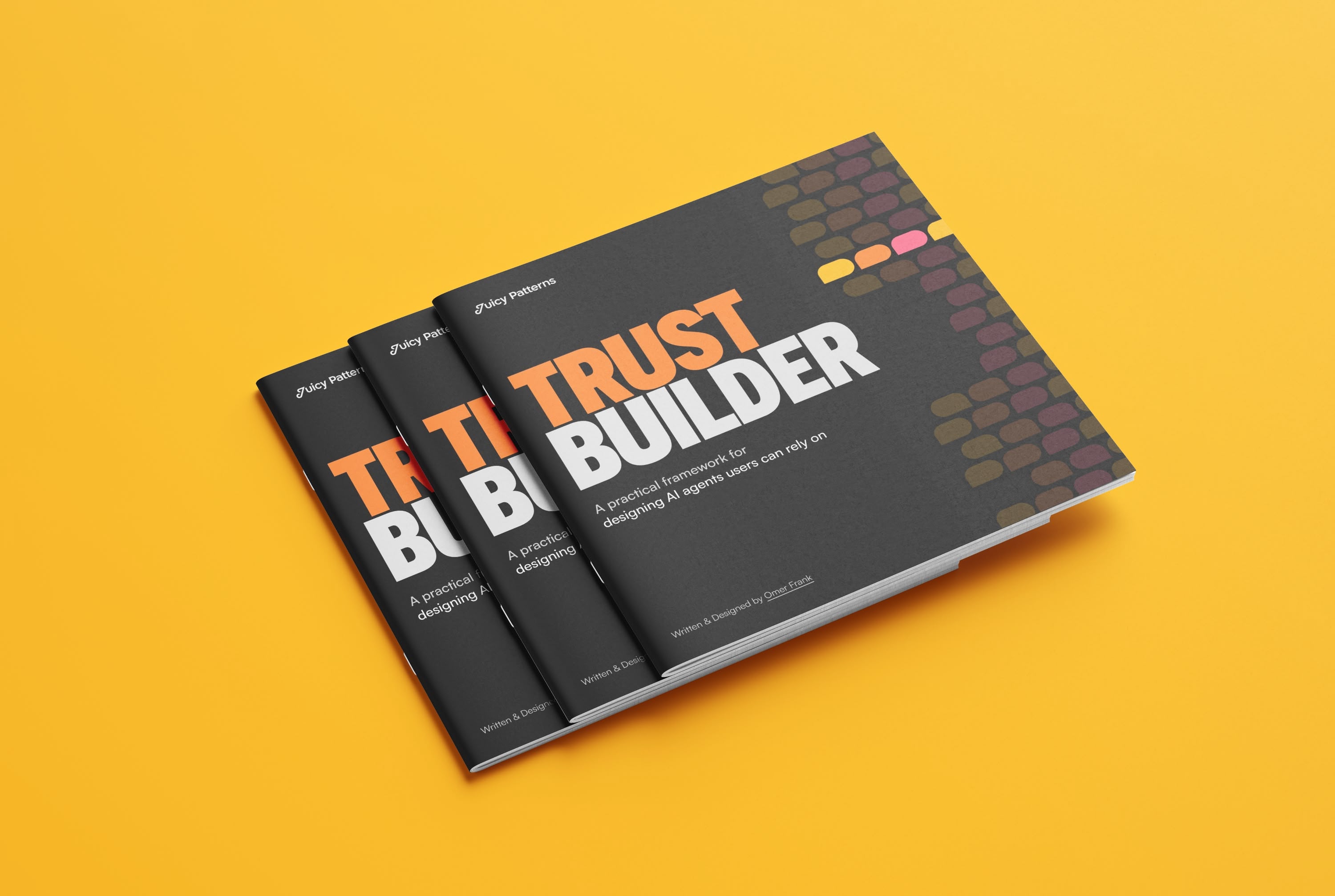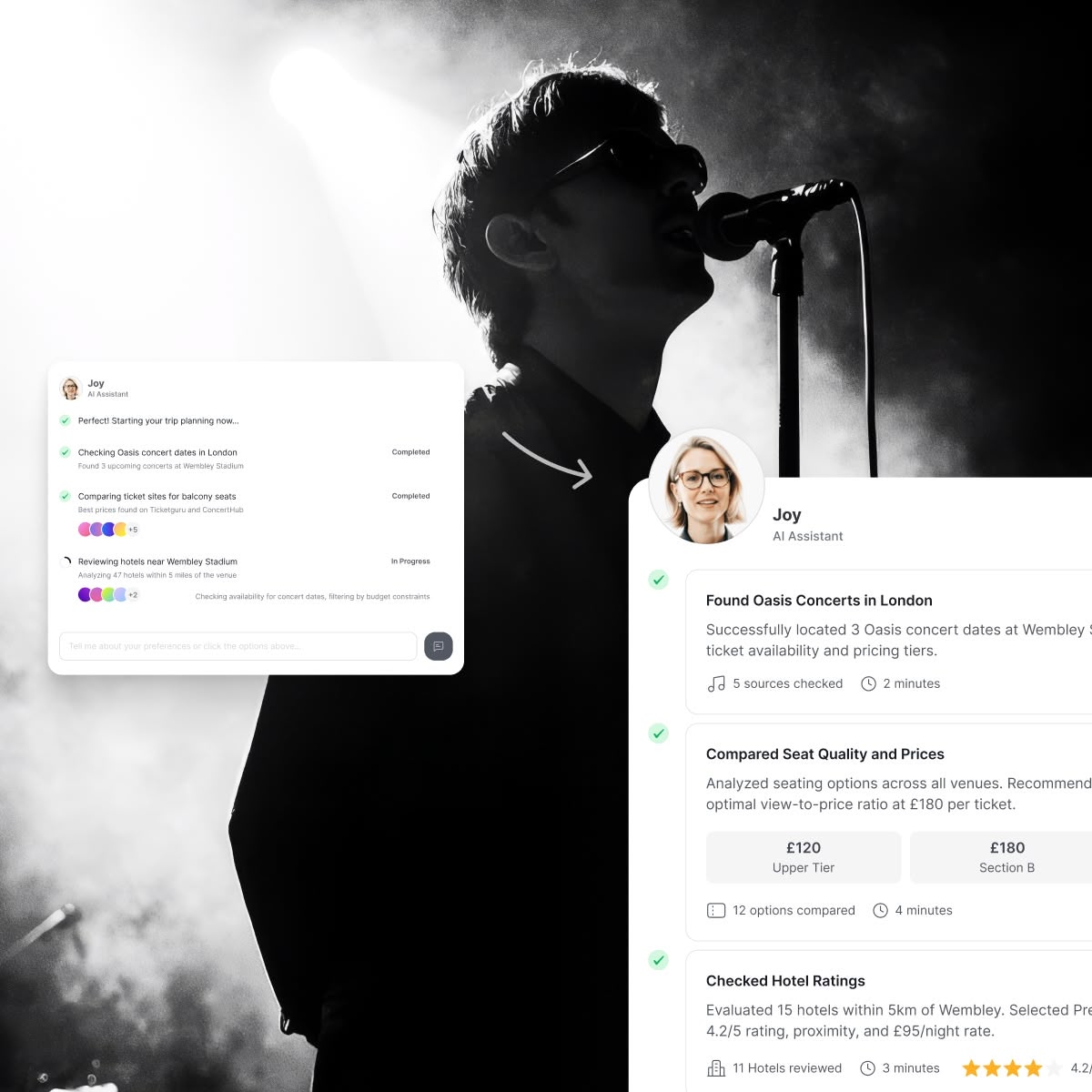Design agents customers trust
Learn to design AI agents that feel trustworthy. Grab your free guide, packed with checklists and design tips.
- 49 pages of research-backed principles on how trust is built
- Checklists and design tips you can use immediately
- Real interface examples showing trust in action

Your AI works perfectly.
The technology is solid.
But users don't trust it.
They doubt results.
They hesitate to delegate.
They abandon your product before seeing its value.
When trust breaks, everything breaks
AI as a toy
Without trust, even accurate outputs get dismissed. Your AI becomes a novelty feature users test once and abandon.
Things turn legal
Opacity around AI decision-making doesn't just frustrate users—it exposes you to regulatory risk and compliance issues.
Damaged brand
Trust is hard to build and easy to lose. One major trust breach can permanently damage your reputation and market position.
Users leave
Low trust means low adoption. That means higher support costs, negative reviews, and an uphill battle for every new user.
What is Trust Builder?
The Trust Builder Framework gives you a practical way to design AI experiences people can rely on. It’s built on five simple pillars that help you spot where trust might break and show you how to fix it.

A brand is trust
Steve Jobs said a brand is just one thing — trust. In AI, that trust is built one honest interaction at a time. The Trust Builder framework helps you make each one count.
What you'll get

A framework for designing trust
With this framework, you'll design AI that not only works well but feels trustworthy, leading to better usability and higher adoption.

Real UI examples
Explore how trust-building design comes to life in practice. This guide presents a narrative where an AI agent, Joy, assists in planning a trip for an Oasis concert in London. Joy's interactions exemplify every trust-building pillar through dedicated UI patterns.

Ready-to-use checklists
5 practical checklists to evaluate and improve your AI immediately:
- Competence: Core reliability, asking questions, showing work
- Transparency: Clear explanations, visible process
- Predictability: Setting expectations, consistent flow
- Alignment: User goals first, clear intentions, fair trade-offs
- Resilience: Error handling, recovery options

Designer tips you can apply today
Practical insights and quick wins. No fluff, just actionable guidance.
